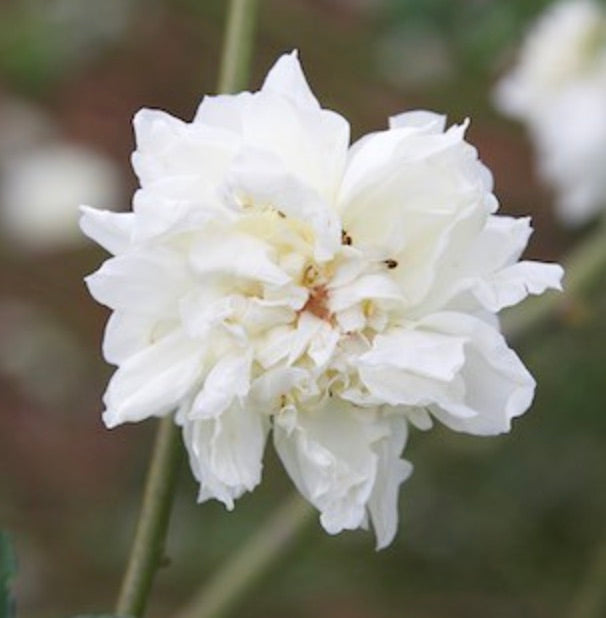- Catalogue Plants
Rosa fortuniana cv "MARYLIN" WHITE"
Rosa fortuniana cv "MARYLIN" WHITE"
Couldn't load pickup availability
Plant Description
Rosa fortuniana cv. 'Marylin' White, also known as Fortuniana Marilyn White rose, is a vigorous, climbing rose cultivar admired for its large, elegantly formed white blooms with a slight fragrance. The flowers are semi-double to double and bloom prolifically throughout the growing season, creating a striking display against the glossy, dark green leaves. Its climbing habit and repeat flowering make it a popular choice for walls, trellises, and arbors. This rose is especially known for its strong, disease-resistant rootstock, which supports healthy growth and makes it suitable for challenging soils.
IMPORTANT: Please be aware that picture 1 show adult plant not for sale, the offer is for a plant in the dimension indicated in title description.
Disclaimer: Please keep on mind that the plant may have grown since pictured. Also be aware that most plants change across seasons. If present foliage could have been fallen or change in its color.
Botanical family: Rosaceae
Botanical genus: Rosa
Botanical species: Rosa fortuniana
SKU:BA-1214-S
Cultivation
Cultivation
Additional information
Additional information
Plant Height:
Plant Diameter:
Picture Taken on:
Pot Size:
Grafted/Not Grafted: Not Grafted


